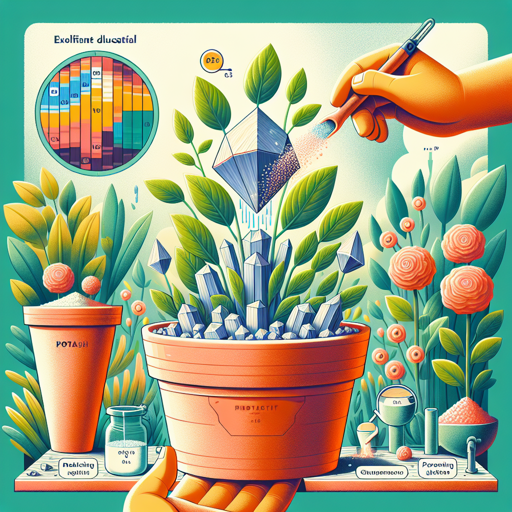The Essential Role of Potash in Agriculture
Discover the crucial role of potash in enhancing agricultural productivity and crop health.

Introduction
Potash has been a key player in the agricultural scene for centuries, providing crucial nutrients for crop growth and development. This mineral is a powerhouse of potassium, an essential nutrient for plant health and productivity.
Potash: A Vital Mineral for Agriculture
Potash is a term generally used to describe potassium salts, a crucial nutrient for plant health. It’s named after the old process of producing potassium carbonate by leaching wood ashes and evaporating the solution in large iron pots (“pot-ash”). Today, potash is most commonly found in the form of potassium chloride (KCl), a naturally occurring pink mineral known as sylvite.
Agricultural Importance of Potassium
Potassium is one of the three primary plant nutrients, alongside nitrogen and phosphorus. It plays a significant role in several plant processes:
- Photosynthesis: Potassium regulates the opening and closing of stomata, which controls CO2 uptake.
- Water Regulation: It helps in maintaining water balance in plants.
- Nutrient Transport: Potassium aids in the transport of sugars and nutrients within the plant.
Potash and Crop Productivity
Potash significantly enhances crop productivity. It improves the plant’s overall health, increasing resistance to diseases and adverse weather. Additionally, it enhances the quality of produce, influencing factors like taste, color, and texture.
“Potassium is to plants what a well-balanced diet is to humans. It is vital for the overall health and productivity of crops.” - Anonymous
Here is a comparison table showing the impact of potash on different crops:
| Crop | Without Potash | With Potash |
|---|---|---|
| Wheat | Low yield, prone to diseases | High yield, disease-resistant |
| Potato | Small tubers, poor color | Large tubers, good color |
| Apple | Small fruits, low sweetness | Large fruits, high sweetness |
Potash Mining and Production
Most potash is derived from evaporite deposits, often buried deep below the Earth’s surface. The two primary methods of potash extraction are solution mining and conventional underground mining. Canada, Russia, and Belarus are among the world’s top potash producers.
Sustainable Use of Potash
As with any mineral resource, sustainable use of potash is crucial. Overuse can lead to nutrient imbalances in the soil, negatively impacting crop health and environmental sustainability. Farmers should test their soil regularly and apply potash judiciously to maintain optimal crop productivity without jeopardizing soil health.
Conclusion
Potash, a key source of potassium, plays a crucial role in enhancing agricultural productivity. Its prudent use can lead to healthier, more resilient crops and a more sustainable agricultural system. As we continue to rely on agriculture for our sustenance, understanding and harnessing the power of minerals like potash will be vital.
To learn more about potash and its uses in agriculture, you can refer to this resource from the International Plant Nutrition Institute.